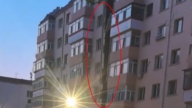【新唐人2011年12月28日讯】受到中国社会广泛关注的刑事诉讼法修正案草案,12月26号第二次提交中共全国人大常委会审议。在二审草案中,仍然保留了所谓“有碍侦查”的情况下,可以不通知家属。这一条款被律师界认为,可能为秘密拘捕打开了“合法”之门。
2011年8月,第一次审议的《刑事诉讼法修正案(草案)》规定,“指定居所监视居住的,除无法通知或者涉嫌危害国家安全犯罪、恐怖活动犯罪,通知可能有碍侦查的情形以外,应当把监视居住的原因和执行的处所,在执行监视居住后二十四小时以内,通知被监视居住人的家属。”
12月26号,在中共全国人大常委会审议的《刑事诉讼法修正案》二审中,相关规定虽然有稍微调整,但大部分仍然被保留了。
在二审草案中,取消了“涉嫌危害国家安全犯罪、恐怖活动犯罪等严重犯罪,通知可能有碍侦查的”可不及时通知家属的规定。但二审草案仍然保留了“有碍侦查”情况可不通知的例外。也就是说,只要警方认定有“妨碍侦查”的可能,都可以不通知家属而直接“拘留”、甚至“正式逮捕”。
北京律师李静林认为,秘密逮捕在刑诉法上不是一个法令问题,而是这个草案没有针对如何防范官方违法逮捕的配套措施。
北京律师李静林:“现在就是有一个关键,违法行为怎么来追究,按照现行的实际体制,那么对于违法行为,官方的违法行为的追究,现在显然还没办法,权势者权力够大,他们可以想怎么样就怎么样,因为没有使权势者不违法的制约力量。”
对此,唐吉田律师也表示,中国在法律的理念上,还是强调一个统治阶级的工具,所以在刑事诉讼法修订的过程当中,没有将保障人权做为第一出发点。
唐吉田律师:“技术上的调整比较多,理念上的进步不是很大,解决那些酷刑等等这方面的问题,也不单单是一个刑诉法修改就能解决,警察权力主导性特别明显的情况下,仅仅是靠修改刑诉法,可能无法从根本上改变。”
事实上,民众最担心的就是秘密拘留。刑事诉讼法修正案草案规定:“逮捕后,应当立即将被逮捕人送看守所羁押。除无法通知的以外,应当把逮捕的原因和羁押的处所,在逮捕后24小时以内,通知被逮捕人的家属。”
二审依然保留了“无法通知”的例外情形。律师认为,什么情况才属于“无法通知”,在草案中看不到明确的解释,字里行间暗藏着玄机,由于缺乏公权力的制衡监督,一旦条例通过,就有可能被个别公权力用来对付公民的一种“合法伤害”。
新唐人记者代静、黄容、薛莉采访报导。
Attempts to Legalize ‘Secret Detention’: Second Version of the China Criminal Procedure Law Amendment Drafted.
There is widespread concern at the second version of China
Criminal Procedure Law Amendment.
On Dec. 26, it was handed to the National People’s Congress
Standing Committee.
Concern centers on an item that a person can be detained
without notifying family if it would “impede investigations”.
Chinese lawyers question whether this item legalizes secret
detention.
The first draft version of the Criminal Procedure Law
Amendment was completed in August 2011.
It stipulates; “Except when a suspects family can’t be
informed, or suspects are held on suspicion of
“endangering state security” or “terrorism", or it will impede
investigations, family should be notified within 24 hours.
This notification will include the reason of surveillance and the
location of surveillance.
The second version of 26th December has slight adjustments,
but most of the draft is retained.
Adjustments add “Once the investigation is not impeded,
authorities should notify family immediately.”
However, the ruling remains that if “notice impedes the
investigation”, the family will not be notified.
This shows that if police consider it a possibility that the
“investigation will be impeded”, family will not be notified.
This allows police to directly detain and arrest suspects.
Beijing Lawyer Li Jinglin said, secret arrest isn’t stipulated in
Criminal Procedure Law.
The draft does not have a related measure to protect illegal
arrest by authorities.
Li Jinglin: “The key now is how to pursue accountability.
According to the current system, it’s clear that nobody can
pursuit accountability for authorities if they violate the law.
If the official has enough power, he/she can do whatever
he/she wants, because there is no restriction.”
Lawyer Tang Jitian also commented that in principle,
the law in China is a tool for the government to rule.
Therefore, protecting human rights isn’t the priority while
the government is making amendments to the law.
Tang Jitian: “The adjustment focuses more on the technical,
but there is little progress in it’s concepts.
The Criminal Procedure Law Amendment can’t solve torture.
Under the situation that the police make the decision, the
Criminal Procedure Law can’t change issues fundamentally.”
In fact, people are most worried about secret detention.
The Criminal Procedure Law Amendment stipulates:
“After arrest, authorities should detain suspects immediately.
Except when notification can’t be achieved, authorities should
notify the family of time and location within 24 hours.”
The second version retains the situation “can’t be notified”.
Lawyers highlight that there is no clear definition what
situation means “can’t be notified”.
There’s trickery hidden between the lines, there’s no public
oversight to balance the power.
The authorities can use the amendment legally against
citizens once it is passed.
NTD Reporters: Dai Jing, Huang Rong and Xue Li





























